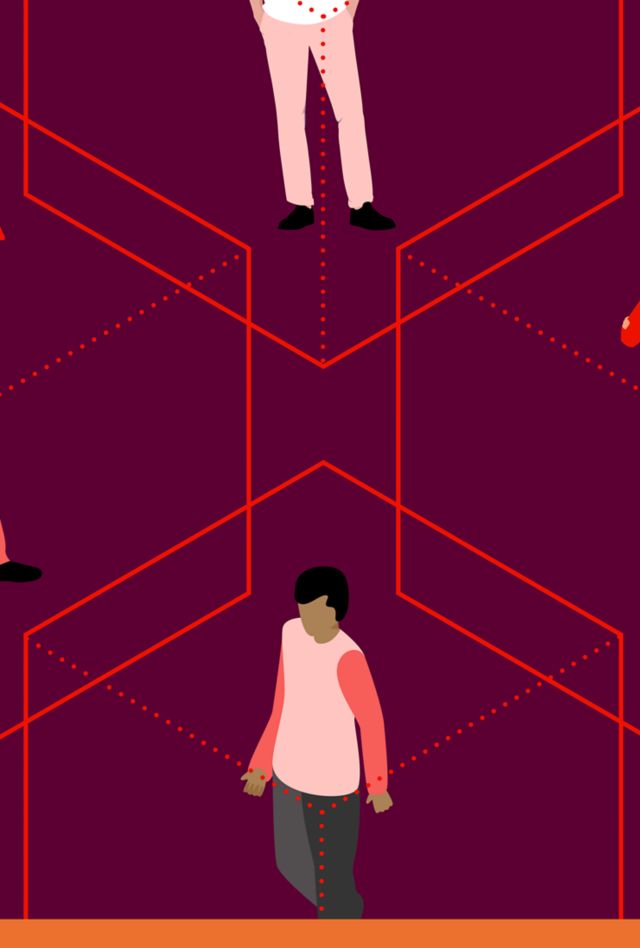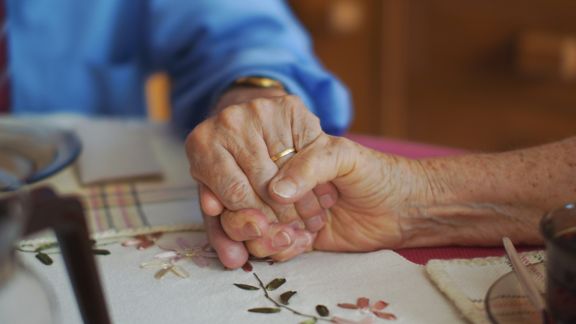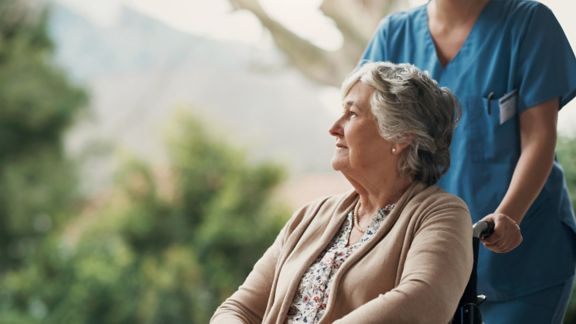More Than Money: How Loneliness & Isolation Color Older Adults’ Concerns About Aging

Foresight 50+
Foresight 50+ by AARP and NORC offers deep insight into the views and behaviors of Americans 50 and older.
For inquiries, contact us:
July 2025
When we think about loneliness and isolation in older age, our minds often go straight to social circles: who’s married, who has close friends nearby, who’s staying in touch with family.
But new data suggest something deeper is at play—our sense of connection may shape how we view everything from our health to our finances.
Data from the Foresight 50+® Omnibus Survey show that while many older adults worry about issues like declining health and financial security, the intensity of these concerns differs significantly based on how lonely or isolated they feel. This suggests that emotional and social well-being may play a powerful role in shaping people’s overall outlook on aging.
Health and Financial Security Are Top Concerns
When asked about concerns about aging, older adults most often cite financial insecurity, declining memory or mental abilities, and poor physical health. Roughly one in four are extremely or very worried about each of these. Slightly fewer—around one in five—worry about losing their independence or becoming a burden on their families. Comparatively, concerns about lacking relationships or facing age-based disrespect are less common.

Loneliness Deepens Worry
Concerns about the future grow sharper for those who already feel lonely. Older adults who say they “always” or “often” lack companionship are more likely to report high levels of worry across all topics surveyed. About four in 10 of those adults are extremely or very concerned about their financial stability and cognitive decline.

Caregiving and the Weight of Worry
Being a caregiver—or living with someone who is—also intensifies concerns. Among households providing unpaid care to a relative or friend, more express heightened worries about being in poor health (29 percent are extremely or very worried compared to 20 percent of non-caregivers who feel the same). Caregivers are also more likely than non-caregivers to worry about becoming a burden on their family (28 percent vs. 16 percent) and losing their memory or other mental capabilities (34 percent vs. 24 percent).
Gender Gaps in Concern
Notable differences also emerge by gender. Women are more likely than men to be extremely or very worried about financial security (32 percent vs. 22 percent), losing memory or other mental capabilities (29 percent vs. 22 percent), and age-based disrespect (13 percent vs. 7 percent).
Addressing loneliness and isolation may offer more than emotional support—it may help older adults feel more hopeful and less burdened by worry as they age. Solutions that prioritize social connection could also improve how people engage with the challenges of later life.
Methodology
These findings come from online and telephone (landline and mobile) interviews with 1,125 U.S. adults on the Foresight 50+ Omnibus Survey conducted March 14-17, 2025. The margin of sampling error was +/- 4.1 percentage points.
This is part of a new series of Foresight 50+ Omnibus Surveys focused on amplifying the voices of people age 50 and over. Now more than ever, policymakers and others need this type of scientifically rigorous, readily available data in real time to help them improve policies and programs for an aging population. The Foresight 50+ FastTrack series—a set of periodic insights using the panel—will meet this need by regularly providing key findings and insights, on an array of topics, which might otherwise be unavailable to the public. The series will also showcase ways in which your organization can use the panel to answer your questions about the highly influential 50+ demographic.
The large Foresight 50+ by AARP and NORC panel can oversample a variety of target groups, such as Medicare beneficiaries, caregivers, those with various health conditions or functional limitations, veterans, frequent travelers, and others. Combined with our affordable TrueNorth® methodology, Foresight 50+ by AARP and NORC can incorporate data from lower-quality sample sources to gain insight into even smaller subpopulations, such as people with food allergies, socially isolated or homebound individuals, and high-net-worth individuals.
For more information on our other surveys, or to learn how we can customize a survey of this demographic to your needs, visit Foresight 50+ or email Foresight50-bd@norc.org. To learn more about how NORC delivers objective, nonpartisan insights and analysis that decision-makers trust across other issue areas and demographics, continue to explore NORC.org.





